Best men’s wetsuits UK 2023: great suits for surfing and open water swimming


This article contains affiliate links. We may earn a small commission on items purchased through this article, but that does not affect our editorial judgement.
A good wetsuit is a must for any activity in the water in our colder European territories.
With a wetsuit on, your body is insulated against the worst of the cold and can withstand the brisk UK sea temperatures as well as protect you against the wind.
Most wetsuits out there, including the ones we’ve reviewed, work by trapping a small amount of water between the suit and the body, and then use your body heat to warm that water to act as a thermal jacket.
It’s a simple but a tried, tested and highly effective method.
What should I be looking for in a men’s wetsuit?
Wetsuit technology has come on leaps and bounds in recent years, especially when it comes to sustainability and thermal ability, so in this article we’ll look to guide you through a bit of the buying advice and what to look for, and additionally suggest a number of wetsuits we’ve tested and would recommend in 2023.
It might seem daunting at first. The wetsuit world is full of jargon, so if you’re a seasoned wettie buyer, scroll down, but this following information may be useful to some.
What size men’s wetsuit should I buy?
If you see ‘mm’ after your wetsuit name it refers to its thickness. Generally, look for thicker wetsuits for colder water and thinner ones for the British spring and summer. The most popular sizes are 3/2mm (for the warmer summer weather), 4/3mm (possibly the most popular size and a good all-round size for spring and summer conditions) and 5/4mm (suitable for the icy waters of most winters).
Personal tastes vary however, so we’d recommend trying a few on to see what you think of each size. Bear in mind that thicker suits are harder to move and be flexible in, so have a think about the kind of activity you want to use your wetsuit for.
There are also a number of height specifics and options on that front too, but these are more nuanced so it’s worth trying a few out and asking someone for advice as brands can vary in sizing. Generally, most brands offer Small or XX-Large, with normal, tall and large offerings of each variant demarcated by an ‘L’ or a ‘T’ in the sizing guide.
Are there specialist wetsuits?
In a word – yes! You can buy diving wetsuits, swimming wetsuits (which are generally designed to be as streamlined as possible) and classic wetsuits which is what we’re all familiar with at the beach whilst surfing.
If you really want a wetsuit to be multi-sport, you’re best off buying a couple designed for certain disciplines – it’ll make your life at lot easier.
Consider the fact that if you want to use your thicker wetsuit in winter (or, let’s face it, probably autumn and spring too) you’ll need to have a think about wetsuit accessories like gloves, boots and hoods. Some wetsuits have in-built hoods but they can be awkward when not in use. Keeping your extremities warm is key!
Now you know what to look for, here are our recommendations for some of the best wetsuits out there in 2023.
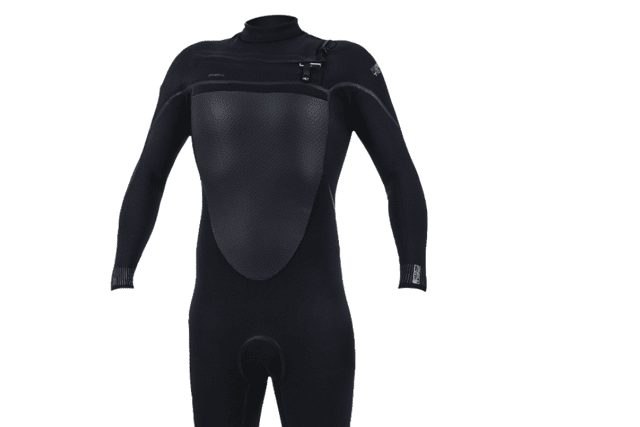

With chest zip closure and super seal cuffs, this is a great wetsuit providing a healthy balance between warmth and seasonal usability in warmer or colder climates.
Double sealed stitchless seams also increase the ability to keep the suit watertight, and a Duraskin Air Firewall in the chest and back shields against the cold while retaining and recirculating body heat.
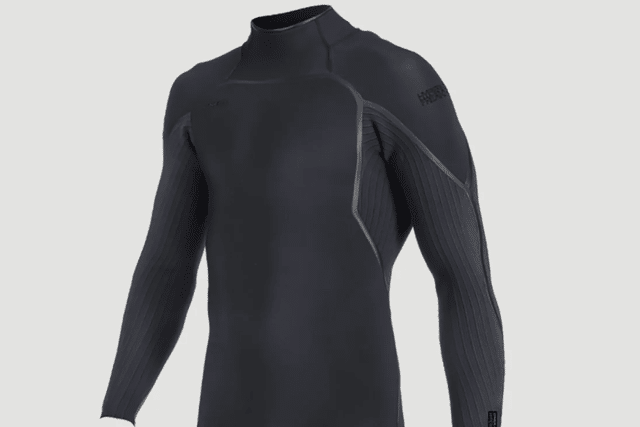

This is one of the best new releases we’ve looked at when it comes to men’s wetsuits - a new recirculating material liner curiously named TechnoButter makes a big difference - not only does it ensure warmth but it also massively increases flexibility and durability. The wetsuit is actually quite soft to the touch too, which makes getting it on and off much easier.
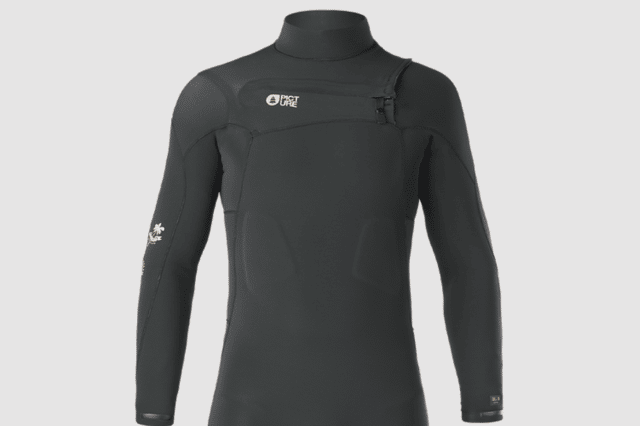

A relatively new addition to men’s wetsuit lineups, the Equation 3/2 is one of the best warm weather, spring/summer wetsuits money can buy at the moment and features high in the sustainability stakes too, these wetsuits are made of anon-petroleum based synthetic foam derived from a mix of oyster shell powder, limestone, and recycled tires.
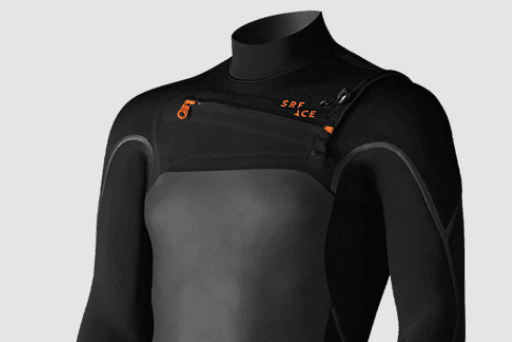

This is a slightly more affordable option that still ticks all the boxes when it comes to a well-designed all rounder of a wetsuit you can use in a variety of different circumstances and conditions.
Insulation across the chest keeps the warmth where you need it the most, and the 360 stretch lining provides good durability and movement in all directions. The brand’s wetsuit size finder and thickness calculator online helps find the perfect fit for you.
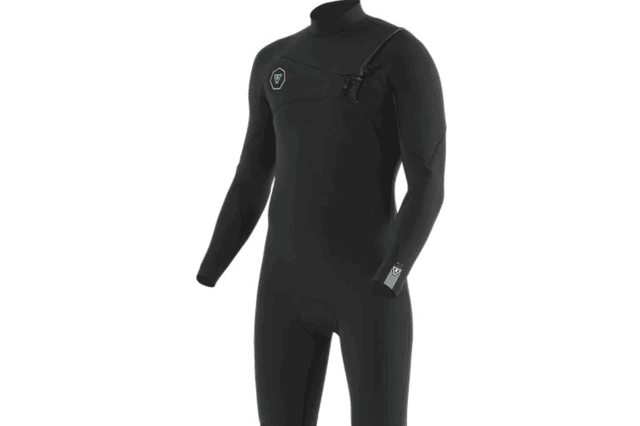

This is another eco-friendly wetsuit that offers a tailored fit with minimal seams for unrestricted warmth and performance.
Made in Bluesign-approved mills, the wetsuits use dope-dyed fabric, which offers a softer, more eco-friendly anti-fade stretch that’s ‘laminated with Aqua A eco-friendly water-based lamination.
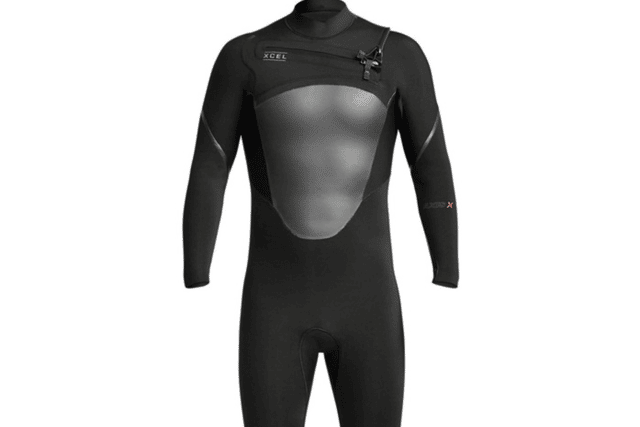

There are currently some good deals to be had on this affordable wetsuit - we’ve used this model on a number of occasions and like the snug chest fit (a back zip option is also available), comfortable nylon collar and ‘thermo lite infrared chest’ which boils down it it being more comfortable and padded in this area allowing it to retain heat generated by the body.
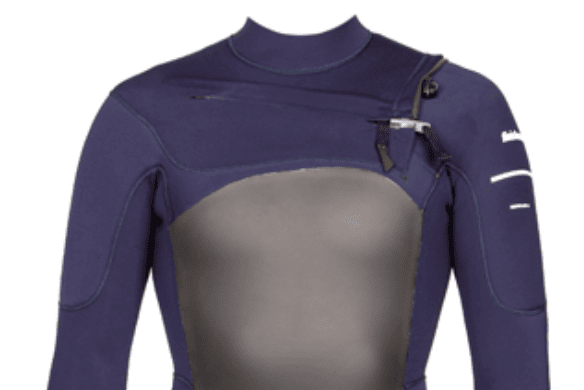

The home of coldwater surfing in the UK, the new Niewland 4s wetsuit from one of Britain’s most respected and recognised outdoor clothing brands is built to be perfect for the range of conditions you’re likely to encounter in British waters, including throughout the winter.
All of Finisterre’s wetsuits are made now using Yulex, which according to the brand “produces up to 80% less CO2 than using traditional neoprene without compromising on performance.”